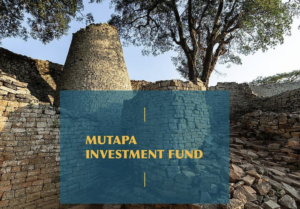ZIMBABWE’S POLITICAL QUAGMIRE: A LOOK INTO THE ILL-FATED AUTOMOTIVE DREAMS
In the heart of Southern Africa, Zimbabwe, a country with a tumultuous political landscape, finds itself entangled in yet another seemingly unachievable venture. The ruling party, ZANU PF, characterized by a litany of negative adjectives – terrorist, barbaric, desperate, failing spectacularly, plundering, looting, illegitimate, parasitic, pestilential, cancerous – has recently floated an idea that borders on the absurd: the establishment of a domestic car manufacturing industry. To the uninitiated, this proposal might seem like a bold stride towards economic revival, but a closer examination reveals it as nothing more than a mirage in the vast desert of the party’s continuous misrule.
The question that immediately springs to mind is, “Who would buy Zimbabwean cars?” In a global market dominated by automotive giants like Toyota, Land Rover, and Ford, what chance does a nascent industry, born in an agriculturally-centric economy, stand? The answer is not encouraging. It seems implausible that Zimbabwe could offer anything sufficiently novel to capture a significant portion of the global demand.
Looking inward, the situation is no less bleak. The middle and working classes, traditionally the backbone of any domestic automotive market, are nearly extinct in Zimbabwe. Their disappearance is a direct consequence of the economic policies and practices of ZANU PF. The party’s reliance on archaic, unproductive agricultural methods like Pfumvudza, and its distribution of agricultural aid along partisan lines, have not only failed to revitalize the rural economy but have also alienated a significant portion of the population. The rural populace, most of whom depend on the ruling party’s weaponized aid, can hardly dream of owning a car.
Furthermore, during the four decades of ZANU PF’s rule, marked by illegitimacy and a singular lack of success in implementing strategies beneficial to the populace, the country has witnessed a systematic plundering of its resources. This is evident in the illegal displacement of civilians by foreign entities and the military, as seen in Chegutu, and the rampant corruption exposed in the auditor general’s reports. The party’s track record in governance, characterized by a lack of accountability, transparency, and good governance, paints a grim picture for any potential automotive industry.
The irony is that the same individuals who presided over the decline of Willowvale Motors are now at the helm, proposing this automotive sector revival. Given the prevailing fiscal crisis, exacerbated by food insecurity and liquidity challenges, the announcement of this new strategy appears to be nothing more than desperate political rhetoric. The likelihood of these funds being misappropriated before the manufacture of a single vehicle is alarmingly high.
This proposed venture into car manufacturing is emblematic of ZANU PF’s governance style: grandiose in announcement, deficient in planning, and disastrous in execution. It is a diversion, a spectacle designed to distract from the immediate and pressing issues that plague the nation. The need of the hour is not an improbable dream of industrial glory but a concerted effort to address the dire crises of food insecurity and economic instability.
In conclusion, while the idea of a Zimbabwean car industry might hold a certain romantic appeal, the harsh realities of the country’s political and economic landscape render it a fanciful notion at best. Until there is a fundamental shift in governance, marked by a commitment to transparency, accountability, and the genuine welfare of the people, such dreams will remain just that – unattainable and illusory.



